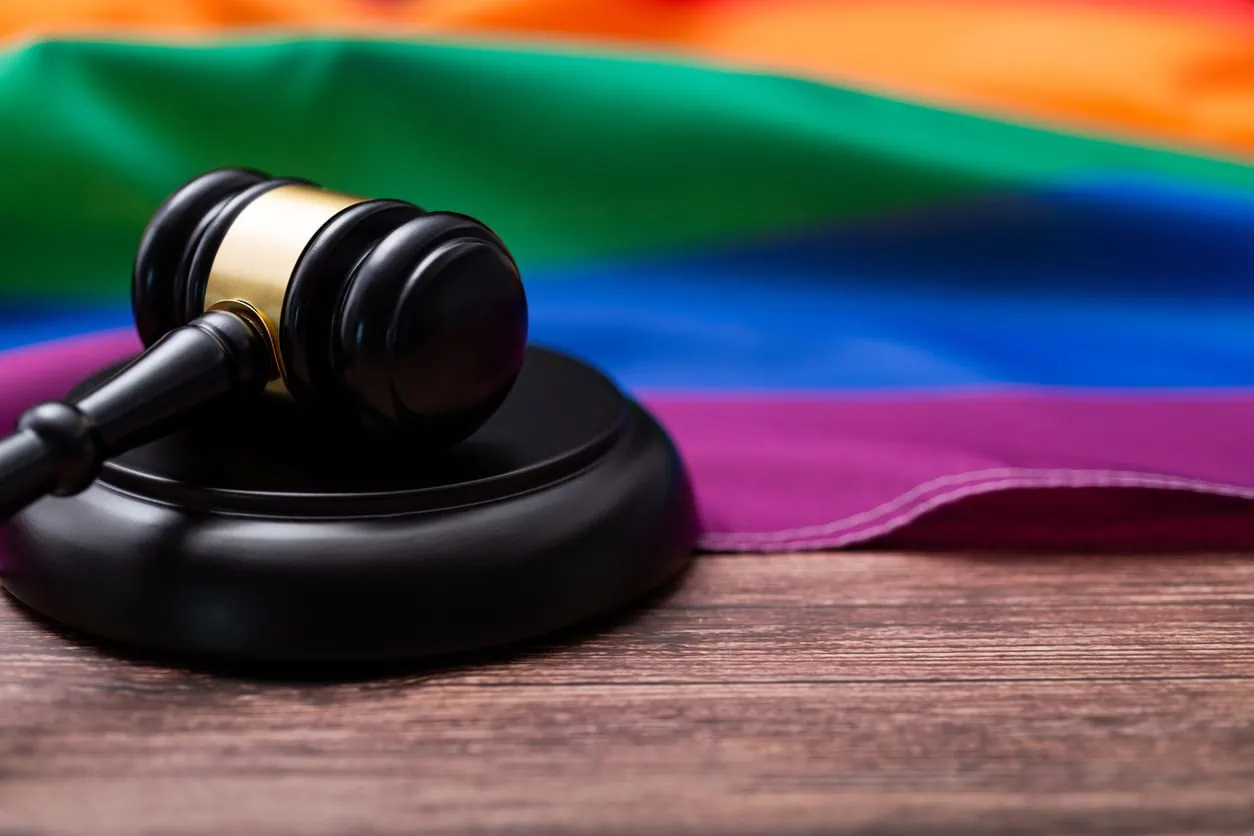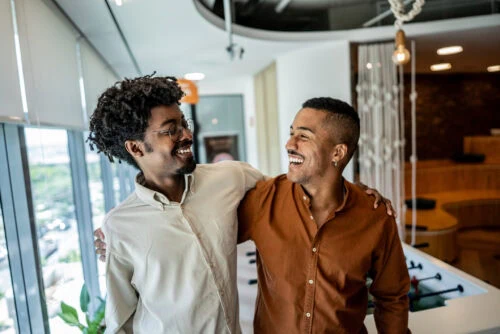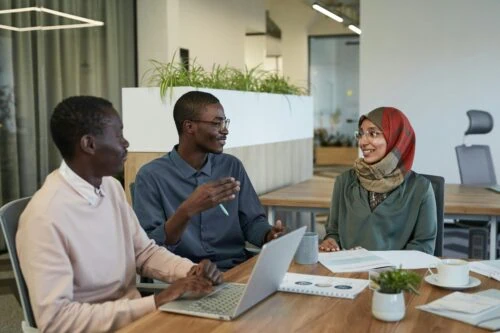Welcome to our comprehensive guide on LGBTQ+ rights. Whether you are an entry-level job seeker looking for a welcoming work environment or an employer aiming to promote inclusivity in your workplace, understanding LGBTQ+ rights is essential. This guide will help you navigate the legal protections, historical context, and ongoing challenges faced by the LGBTQ+ community.
Why This Guide Matters
In today’s diverse world, it is vital to promote equality and ensure that all individuals, regardless of their sexual orientation or gender identity, have the opportunity to pursue their careers without fear of discrimination or prejudice. By understanding and supporting LGBTQ+ rights, you contribute to a fairer, more inclusive society.
This guide will provide valuable insights into how you can advocate for and support the LGBTQ+ community in your professional and personal life. Let’s embark on this important journey together.
Understanding LGBTQ+ Rights
LGBTQ+ rights encompass the legal and civil protections for individuals who identify as lesbian, gay, bisexual, transgender, and queer. These rights are crucial for ensuring that LGBTQ+ individuals receive equal treatment under the law. Furthermore, they help shield people from discrimination in various areas, including online security, employment, housing, education, and healthcare.
Prevalence of LGBTQ+ Discrimination
Despite progress, discrimination remains a reality for many in the LGBTQ+ community. For instance, the ACLU provides resources on LGBTQ+ Rights and advocacy for those encountering discrimination. The Human Rights Campaign (HRC) annually updates a list showcasing companies and their policies on LGBTQ+ inclusivity, which can also guide employment decisions.
Legal Protections
Legal protections for the LGBTQ+ community differ significantly across the United States. While some states have comprehensive anti-discrimination laws, others have none. This patchwork of protections means that the rights of LGBTQ+ individuals can vary significantly depending on where they live.
It’s not just about laws; societal attitudes play a significant role, too. Awareness and education can foster an environment where LGBTQ+ rights are supported broadly. Initiatives such as public discussions, educational programs, and inclusive practices in businesses and schools are fundamental. Engaging in cultural events also promotes inclusivity, understanding, and support for LGBTQ+ rights, as seen from The Evolving Landscape of Civil Rights in America, which includes the LGBTQ+ community.
LGBTQ+ rights are not just a political agenda but essential human rights that safeguard dignity, respect, and equality for all individuals, regardless of their sexual orientation or gender identity.
Historical Context of LGBTQ+ Rights
The fight for LGBTQ+ rights has a rich history that spans decades. Initially, the movement focused on legal recognition and protection against discrimination, evolving into a broader human rights and social acceptance cause.
Early Activism
The Stonewall riots of 1969 are often cited as the catalyst for the modern LGBTQ+ rights movement. What began as a spontaneous demonstration against a police raid in New York City sparked a worldwide movement. More about this pivotal event can be found at reputable historical sites like the National Park Service’s Stonewall National Monument page.
Legislative Milestones
Significant legal advances have been achieved over the years. The repeal of “Don’t Ask, Don’t Tell” in 2011 allowed gays, lesbians, and bisexuals to serve openly in the military. Further progress was made when the U.S. Supreme Court ruled in favor of marriage equality in 2015 via the landmark case Obergefell v. Hodges, which can be reviewed thoroughly through the Oyez Project’s comprehensive case summary.
Global Perspectives
The global landscape for LGBTQ+ rights varies significantly. Some countries boast progressive laws and protections, while others criminalize LGBTQ+ behaviors and identities. Insights into the global status of LGBTQ+ rights can be explored through resources like Amnesty International.
This historical context sets the stage for understanding current challenges and the ongoing efforts needed to achieve full equality for the LGBTQ+ community worldwide.
Current Challenges for the LGBTQ+ Community
Despite significant progress, the LGBTQ+ community still faces many challenges. These issues range from legal hurdles to everyday discrimination, impacting the lives of many.
Workplace Discrimination
While legislation like the Equality Act seeks to prohibit discrimination, many LGBTQ+ individuals still face workplace challenges. Unfortunately, biases and unequal treatment persist in many job environments.
Healthcare Access
Accessing healthcare without prejudice is another major issue for LGBTQ+ people. Many avoid medical care due to past negative experiences with healthcare providers who lack understanding of LGBTQ+ specific health needs.
Transgender Rights
The rights of transgender individuals are especially precarious. They frequently confront obstacles that affect their legal recognition, access to healthcare, and protection from violence.
Education on LGBTQ+ Issues
There is also a critical need for comprehensive education on LGBTQ+ issues. Schools often lack resources or policies to support LGBTQ+ students, which can lead to bullying and mental health challenges.
Moreover, societal acceptance remains a hurdle. Although attitudes are shifting, there’s still substantial resistance in certain communities, sometimes fueled by misinformation. Addressing these challenges requires continual advocacy, supportive policies, and widespread education to foster a more inclusive society.
Legal Milestones in LGBTQ+ Rights
LGBTQ+ rights have seen numerous legal changes, significantly shaping the landscape of civil liberties for the community.
Decriminalization of Homosexuality
The 2003 Supreme Court ruling in Lawrence v. Texas marked a pivotal change by striking down laws criminalizing homosexual acts. This not only ended legal discrimination but also helped shift public opinion.
Marriage Equality
A landmark victory came in 2015 with the Supreme Court’s decision in Obergefell v. Hodges, which guaranteed marriage rights to LGBTQ+ couples nationwide. This ruling was a monumental step forward for equality.
Employment Protection
In 2020, the Supreme Court confirmed in Bostock v. Clayton County that employment discrimination based on sexual orientation or gender identity is prohibited under the Civil Rights Act of 1964. This extended job protection across all states, ensuring a more inclusive workforce.
Adoption Rights
Legal barriers to LGBTQ+ adoption have been falling. Many states now have laws that allow same-sex couples to adopt children, providing them the same rights as opposite-sex couples. Family law resources, such as Lambda Legal, offer support and information for navigating these processes.
Military Service
The repeal of “Don’t Ask, Don’t Tell” in 2011 allowed LGBTQ+ individuals to serve openly in the U.S. military, ending years of secrecy and fear of discharge based on sexual orientation.
These milestones represent significant progress toward equality but are still just the beginning. The fight for comprehensive LGBTQ+ rights and acceptance continues.
Advocating for LGBTQ+ Rights: How You Can Help
Supporting LGBTQ+ rights is crucial for advancing equality and justice. Here are practical steps anyone can take to advocate effectively.
Raise Awareness
Spreading knowledge is powerful. Share information about LGBTQ+ issues through social media, discussions, and public speaking. Engaging with campaigns from organizations like GLAAD raises visibility and understanding.
Support LGBTQ+ Organizations
Donating time or money to LGBTQ+ groups can make a big difference. Organizations such as The Trevor Project provide critical support and advocacy that saves lives.
Participate in Events
Joining LGBTQ+ events like Pride parades or local meetings promotes solidarity. Events also serve as crucial platforms for advocacy and bring communities together.
Educate Yourself and Others
Continual learning about LGBTQ+ issues is essential. Online platforms and libraries offer resources for those looking to deepen their understanding. Encourage inclusive education by sharing insights with friends, family, and colleagues.
Vote
Supporting policymakers who advocate for LGBTQ+ rights influences legislation. Make sure to vote in both local and national elections.
Advocacy starts with individual actions but leads to collective progress. Participating in these activities contributes to a greater acceptance and equal treatment of the LGBTQ+ community.
Role of Education in Promoting LGBTQ+ Inclusivity
Education plays a pivotal role in fostering understanding and support for LGBTQ+ rights. Integrating LGBTQ+ issues into educational systems can significantly decrease discrimination and enhance inclusivity.
Curriculum Integration
Incorporating LGBTQ+-related topics into school curriculums is essential. It ensures that all students receive a balanced understanding of diverse identities and experiences. Resources like GLSEN offer guidelines and materials to help schools in these efforts.
Teacher Training
Educating teachers on LGBTQ+ issues prepares them to handle related topics sensitively and informatively. Training helps create a safe and supportive school environment for LGBTQ+ students.
Supportive Policies
Schools need clear anti-bullying policies that specifically protect LGBTQ+ students. Such policies should also provide guidelines on addressing harassment effectively to ensure a safe learning environment for everyone.
Student-Led Groups
Encouraging the formation of alliances and support groups within schools, like Gay-Straight Alliances (GSAs), empowers students to actively foster an inclusive atmosphere.
Through these educational initiatives, schools play a crucial role in shaping future generations to be more accepting and supportive of LGBTQ+ individuals.
Celebration and Recognition: LGBTQ+ Events and Symbols
Celebrating LGBTQ+ culture and achievements is essential in promoting rights and acceptance. Recognizing key events and symbols can deepen understanding and support within the broader community.
Important LGBTQ+ Events
Various global and local events celebrate LGBTQ+ identities and advocate for rights. Pride Month, observed every June, commemorates the Stonewall riots and celebrates community solidarity. For more detailed information, explore the Human Rights Campaign.
LGBTQ+ Symbols
Recognizable symbols like the rainbow flag foster a sense of community and visibility. Each flag color represents different aspects of the community and its diversity. Events like the Cultural Celebrations in February often incorporate these symbols to celebrate inclusivity and diversity.
Recognition in Media and Literature
Media and literature are pivotal in shaping societal attitudes towards LGBTQ+ individuals. Positive representation in books, movies, and television can influence public perception and foster empathy and understanding.
By participating in these celebrations and recognizing these symbols, individuals contribute to a culture of acceptance and equality for the LGBTQ+ community.
FAQs About LGBTQ+ Rights
Understanding LGBTQ+ rights involves addressing common questions and misconceptions. Here are some frequently asked questions to clarify these issues.
What are LGBTQ+ rights?
LGBTQ+ rights are protections and freedoms specifically for individuals who identify as lesbian, gay, bisexual, transgender, and queer. These rights ensure equality under the law.
Why is LGBTQ+ equality important?
Equality prevents discrimination and violence against LGBTQ+ individuals. It promotes a just society where everyone can live authentically and safely.
How can I support LGBTQ+ rights?
Support can be shown through advocacy, education, and participation in or donation to LGBTQ+ organizations and events.
What legal protections are in place for LGBTQ+ people?
Several laws protect against discrimination in jobs, housing, and more. Significant rulings include the Supreme Court’s decisions in Obergefell v. Hodges and Bostock v. Clayton County.
Can LGBTQ+ rights vary by country?
Yes, legal protections and societal attitudes towards LGBTQ+ people can differ widely across countries. Some nations have progressive policies, while others have prohibitive laws against LGBTQ+ expressions.
Conclusion
Embracing and advocating for LGBTQ+ rights is paramount to fostering a society that values equality and diversity. By understanding the historical context, current challenges, and ongoing efforts in advocacy and education, we all play a role in shaping a more inclusive future.
Take Action
We encourage you to join the movement towards equality. Participate in advocacy for EEO employment, educate others, and support LGBTQ+ friendly policies and businesses. Together, we can make a difference in the lives of many and move closer to a world where everyone, regardless of their sexual orientation or gender identity, is respected and valued.
Join us at Diversity Employment to find opportunities with inclusive employers and to connect with a platform that champions diversity and inclusivity. Let’s create an environment where everyone can bring their whole self to work and thrive.




